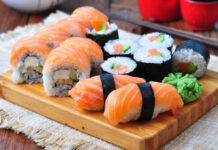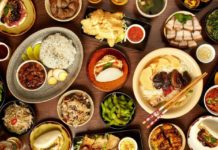Thai lifestyle is known for its rich cultural heritage, warm hospitality, and laid-back approach to life. It is deeply influenced by Buddhism, which is the dominant religion in Thailand. The Thai people are known for their friendliness, respect for tradition, and love for their monarchy. Let’s explore some key aspects of the Thai lifestyle:
- Family and Community: Family plays a central role in the Thai lifestyle, and there is a strong sense of community. Thai families are typically close-knit, with multiple generations often living together in the same household. Family members provide support and care for each other, and family values are highly regarded.
- Thais place a high value on familial relationships and often have strong bonds with their extended family members. It is common for multiple generations to live together in the same household, and family members provide support and care for each other throughout their lives.
- Family gatherings and celebrations are important in Thai culture, and Thais often prioritize spending time with family members, especially during special occasions such as festivals, birthdays, and holidays. Respect for elders is also deeply ingrained in Thai culture, and younger family members show deference and care towards their older relatives.
- In Thai communities, there is a strong sense of belonging and mutual support. Neighbors and extended family members often come together to help each other in times of need, and people often rely on their community for socializing, assistance, and emotional support. This sense of community creates a supportive network and fosters a sense of belonging and interconnectedness among Thais.
- Family values, such as filial piety, respect for elders, and maintaining harmony within the family, are highly regarded in Thai society. Thai families often have a hierarchical structure, with the eldest family members holding authority and respect. Children are expected to show obedience and respect towards their parents and grandparents, and there is a sense of duty toward taking care of aging family members.
- Overall, the importance of family and community in the Thai lifestyle is evident in the close-knit relationships, mutual support, and respect for family values that are deeply embedded in Thai culture.
- Buddhism: Buddhism is deeply ingrained in Thai culture and lifestyle. The majority of Thais practice Theravada Buddhism, and temples (known as “wats”) are an integral part of Thai communities. Many Thais participate in Buddhist rituals and practices, such as making merit, giving alms to monks, and observing religious festivals.
- The majority of Thais practice Theravada Buddhism, which is a form of Buddhism that emphasizes mindfulness, meditation, and the pursuit of enlightenment. Temples, or “wats” in Thai, are prominent in Thai communities and play a central role in Thai religious and cultural life.
- Thais often participate in various Buddhist rituals and practices as part of their daily lives. Making merit, or “tamboon” in Thai, is a common practice where Thais perform good deeds or acts of kindness as a way to accumulate positive karma and seek blessings for themselves and their loved ones. This can include donating to temples, giving alms to monks, or participating in community service.
- Giving alms to monks, or “tak bat” in Thai, is a significant Buddhist practice in Thailand. It involves offering food and other essentials to monks as they walk on their morning alms rounds. Many Thais participate in this ritual as a way to show reverence to the monks and support their spiritual practice.
- Buddhist festivals and holidays also hold special significance in Thai culture. Festivals such as Songkran, which marks the Thai New Year, and Loy Krathong, the Festival of Lights, are celebrated with great enthusiasm and are important cultural events. Thais often participate in religious ceremonies, make offerings at temples, and engage in traditional activities during these festivals.
- Buddhism also shapes Thai values, beliefs, and attitudes toward life. Concepts such as karma, rebirth, and the pursuit of inner peace and enlightenment are deeply ingrained in Thai culture. Buddhism promotes mindfulness, compassion, and moral conduct, which are considered important virtues in Thai society.
- In summary, Buddhism is a significant aspect of the Thai lifestyle, shaping the beliefs, practices, and values of the Thai people. Temples, rituals, and Buddhist festivals are integral parts of Thai communities, and Buddhist teachings influence various aspects of daily life, including personal conduct, social interactions, and spiritual beliefs.
- Food and Cuisine: Thai cuisine is famous worldwide for its delicious flavors and unique combinations of sweet, sour, salty, and spicy tastes. Thai people have a deep appreciation for food and dining is often a social event. Street food is also a popular aspect of the Thai lifestyle, with numerous food stalls offering a wide variety of affordable and tasty dishes.
- Thai cuisine is renowned globally for its distinct flavors and unique culinary combinations. Thai people have a deep appreciation for food, and dining is often considered a social event that brings people together. Thai cuisine is characterized by its bold and complex flavors, which typically incorporate a balance of sweet, sour, salty, and spicy tastes.
- Thais take pride in their local cuisine, and regional specialties can vary widely across different parts of Thailand. From fragrant curries to tangy salads, Thai cuisine is known for its use of fresh herbs, spices, and a wide array of ingredients that create a harmonious explosion of flavors.
- In Thai culture, mealtime is often a communal affair, with family and friends coming together to share a variety of dishes. Thais typically eat rice as a staple food, and it is common for a meal to include a variety of dishes such as stir-fries, curries, soups, and salads. Sharing dishes and eating family style is a common practice in Thai dining, fostering a sense of togetherness and conviviality.
- Street food is also a significant aspect of the Thai lifestyle, and Thailand is famous for its vibrant street food culture. In almost every corner of Thailand, you can find food stalls or “hawkers” offering a wide variety of affordable and delicious dishes. Street food is not only a convenient and quick option for locals, but it also offers a chance to experience the rich and diverse flavors of Thai cuisine in an authentic and casual setting.
- Thai people take pride in their culinary skills and often view food as an art form. The presentation of dishes is also given great importance, with an emphasis on aesthetics and visual appeal. Thais are adventurous eaters, and their cuisine often includes a diverse range of ingredients, from aromatic herbs and spices to exotic meats and seafood.
- In summary, Thai cuisine is renowned for its delicious flavors, unique combinations of tastes and the importance of food in Thai culture. Dining is often a social event, and street food is a beloved aspect of the Thai lifestyle, offering a wide variety of affordable and tasty dishes that reflect the rich culinary heritage of Thailand.
- Festivals and Celebrations: Thailand is known for its colorful and vibrant festivals, which are an important part of the Thai lifestyle. Festivals such as Songkran (Thai New Year), Loy Krathong (Festival of Lights), and Yi Peng (Lantern Festival) are celebrated with much enthusiasm, often involving religious ceremonies, cultural performances, and communal activities.
- Thailand is indeed known for its colorful and vibrant festivals, which are an integral part of the Thai lifestyle and hold significant cultural and religious significance. Thai festivals are celebrated with great enthusiasm and are cherished events that bring communities together.
- One of the most famous festivals in Thailand is Songkran, which marks the Thai New Year and is celebrated in mid-April. Songkran is known for its water festival, where people engage in playful water fights and splash water on each other as a symbol of cleansing and purification for the New Year. It is a time for family reunions, offering prayers at temples, making merit, and engaging in festive activities.
- Loy Krathong, also known as the Festival of Lights, is another popular festival celebrated on the full moon night of the twelfth lunar month (usually in November). During Loy Krathong, people release small lotus-shaped floats, known as “krathongs,” onto rivers, canals, and other water bodies, adorned with candles, incense, and flowers as a way to pay respects to the water goddess and let go of misfortunes.
- Yi Peng, also known as the Lantern Festival, is a festival celebrated in Northern Thailand during the same time as Loy Krathong. It is known for the release of thousands of paper lanterns into the night sky, creating a mesmerizing spectacle of floating lights. Yi Peng is often associated with making wishes and offering prayers for good luck and prosperity.
- These are just a few examples of the many colorful festivals celebrated throughout Thailand. Thai festivals often involve religious ceremonies, cultural performances, traditional music and dances, and communal activities that showcase the rich cultural heritage of Thailand. Festivals are an important part of Thai culture, and they offer an opportunity for people to come together, celebrate, and express their spiritual and cultural beliefs.
- In summary, festivals such as Songkran, Loy Krathong, and Yi Peng are an important part of the Thai lifestyle, celebrated with enthusiasm and cherished as significant cultural and religious events. These festivals showcase the rich cultural heritage of Thailand and bring communities together in celebration, making them an integral aspect of Thai culture and way of life.
- Respect for Monarchy: The Thai monarchy holds a special place in Thai culture and lifestyle. Thai people hold great reverence for the Thai royal family, and any criticism or disrespect towards the monarchy is considered highly offensive and can result in legal repercussions. Images of the royal family are prominently displayed in public places, and Thais show deep respect and loyalty toward the monarchy.
- The Thai monarchy holds a special place in Thai culture and lifestyle. The Thai royal family, also known as the Chakri Dynasty, has a significant role in Thai society and is deeply revered by the Thai people. Thais hold a great sense of respect, loyalty, and reverence towards the monarchy, and any criticism or disrespect towards the monarchy is considered highly offensive and can have legal repercussions in Thailand.
- Images of the royal family, including the King, Queen, and other royal family members, are prominently displayed in public places, such as government buildings, schools, and businesses, as a sign of respect and loyalty. Thais often express their devotion to the monarchy through various ceremonies, events, and displays of loyalty, such as wearing yellow clothing, which is associated with the King, and participating in royal-related activities.
- The Thai monarchy has a long history and is deeply intertwined with Thai culture, religion, and society. The King is regarded as the head of state and the symbol of national unity and stability. The monarchy is often seen as a unifying force in Thai society, and Thais show great respect and loyalty towards the King and the royal family.
- It’s important to note that Thailand has strict laws that protect the monarchy, and any act of defamation, criticism, or disrespect towards the monarchy is considered a serious offense under Thailand’s “lese majeste” laws. These laws are aimed at preserving the dignity and respect of the monarchy, and violators can face severe legal consequences, including imprisonment.
- In summary, the Thai monarchy holds a special place in Thai culture and lifestyle, with the Thai people showing deep reverence, loyalty, and respect towards the royal family. Any criticism or disrespect towards the monarchy is considered highly offensive and can have legal repercussions in Thailand. The monarchy is seen as a unifying force in Thai society, and images of the royal family are prominently displayed in public places as a sign of loyalty and devotion.
- Muay Thai: Muay Thai, also known as Thai boxing, is a popular martial art and sport in Thailand. It is deeply embedded in Thai culture and has a significant impact on the Thai lifestyle. Many Thais, including children, train and compete in Muay Thai, and it is considered a source of national pride.
- Muay Thai is widely practiced in Thailand, with many Thais, including children, training and competing in this martial art. Muay Thai training often starts at a young age, and it is not uncommon to see children as young as six or seven years old learning and practicing Muay Thai techniques. Training in Muay Thai is seen as a way to instill discipline, self-defense skills, and a sense of national pride in the practitioners.
- Muay Thai has a strong presence in Thai communities, with numerous gyms and training camps scattered throughout the country. These gyms and training camps serve as centers for learning and practicing Muay Thai, as well as fostering a sense of camaraderie and community among the practitioners. Muay Thai competitions, both at the amateur and professional levels, are popular events in Thailand, and they often draw large crowds of enthusiastic spectators.
- Muay Thai is not just a sport, but it also has cultural and ceremonial aspects. Before a Muay Thai match, there are often rituals and ceremonies performed, such as the “Wai Khru Ram Muay,” a dance-like ritual performed by the fighters to pay respect to their trainers, ancestors, and the art of Muay Thai. These cultural elements add depth and significance to the practice of Muay Thai in Thailand.
- Furthermore, Muay Thai has gained international recognition as a competitive sport, with fighters from Thailand and around the world participating in professional Muay Thai competitions. This has contributed to the global popularity and influence of Muay Thai, and it is often regarded as one of the most effective and intense martial arts.
- In summary, Muay Thai is a popular martial art and sport deeply embedded in Thai culture and has a significant impact on the Thai lifestyle. It is practiced by many Thais, including children, and is considered a source of national pride. Muay Thai has a strong presence in Thai communities, with gyms and training camps serving as centers for learning and practicing, and competitions drawing large crowds of enthusiastic spectators. Muay Thai also has cultural and ceremonial aspects that add depth and significance to its practice in Thailand.
- Sanuk (Fun and Enjoyment): “Sanuk” is a Thai concept of finding joy and happiness in everyday life. Thais have a relaxed and fun-loving attitude toward life, and they prioritize enjoying the moment and having a good time with friends and family. This is reflected in the emphasis on leisure activities, socializing, and a laid-back approach to work-life balance.
- Thais have a relaxed and fun-loving attitude toward life, and they prioritize enjoying the moment and having a good time with friends and family. This is reflected in various aspects of the Thai lifestyle.
- Leisure activities and socializing are important aspects of Thai culture. Thais enjoy spending time with their loved ones, and social gatherings, such as family gatherings, dinners with friends, and celebrations, are common occurrences. Thai people often engage in recreational activities, such as going to the beach, visiting temples, participating in festivals, or enjoying local entertainment, as a way to relax, have fun, and find joy in life.
- Work-life balance is also valued in the Thai lifestyle. While work is important, Thais generally have a more laid-back approach to work and prioritize spending quality time with family and friends. Many Thais value personal relationships and connections, and they place importance on maintaining social bonds and nurturing meaningful relationships, which contribute to their overall happiness and well-being.
- Thais also have a sense of playfulness and humor in their daily lives. They often find joy in simple pleasures, such as sharing laughter, playing games, and engaging in light-hearted banter. This sense of playfulness and lightheartedness is reflected in the concept of “sanuk,” which promotes finding joy in the little things in life and having a positive and optimistic outlook.
- In summary, “sanuk” is a concept deeply ingrained in Thai culture that reflects the Thais’ relaxed and fun-loving attitude toward life. Thais prioritize enjoying the moment, leisure activities, socializing, and maintaining a healthy work-life balance. They have a sense of playfulness and humor in their daily lives, and they find joy in simple pleasures.
These are just some aspects of the Thai lifestyle, which is known for its rich cultural heritage, warm hospitality, and deep connection to tradition and community. Thai people value their families, religion, food, festivals, monarchy, and the pursuit of happiness in everyday life.




